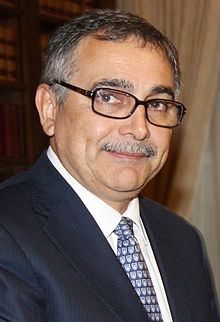The cost of renewable energies such as tidal and wave power
in the open sea, wind and solar power have come down greatly in recent years
but they are rarely considered viable for base power, largely because of the
energy storage needed. As this gets solved by going beyond lithium-ion
batteries, there are great growth opportunities for supercapacitors and reflow
batteries in the $30 billion off-grid and the huge on-grid energy market.
Radically improved supercapacitors will provide short term storage such as at
turn-of-tide (8 of the top 10 cities are on the sea) and new batteries will
provide longer term storage such as overnight for solar. The IDTechEx Research
reports, Redox Flow Batteries 2018-2028: Markets, Trends, Applications and
Supercapacitor Technologies and Markets 2018-2028 explain fully. Electricity
will be made where it is needed as we bypass increasing attacks on long grid
powerlines by cyberterrorists and increasingly violent weather. Self-Powering
Smart Cities 2018-2028, a recent IDTechEx Research report envisages more
Reflow batteries are usually non-flammable, environmentally
friendly, can be repaired, are relatively non-toxic and have lifespans of at
least 10,000 cycles, maintaining 90% of their capacity over 20 years.
Supercapacitors store energy more briefly but delight with longer life than
either of them and effectively infinite cycle life: their power density is
magnitudes ahead. The new IDTechEx Research report, Supercapacitor Materials
and Technology Roadmap 2019-2029 scopes pseudocapacitor variants approaching
lithium-ion battery energy density.
Most supercapacitor options are non-toxic
and non-flammable. Astoundingly, Imperial College London supercapacitors now
form load-bearing structures of lighter weight than the dumb structure they
replace. This “negative mass energy”, puts batteries on the back foot as the
bulky, heavier option now. Currently all batteries, even new solid state ones,
swell and shrink in use so they cannot become load-bearing smart materials.
Raghu Das CEO of IDTechEx says, “The Levelised Cost of
Electricity for the best wind and solar plants has plummeted to below most
coal, nuclear and gas plants. However, wind and solar are severely
intermittent, this being usefully reduced but not eliminated by combining the two.
The situation will improve as wind turbines grow higher to where winds are
stronger at night and more consistent in the day. As they cease to be viable
beyond 300 meters, new Airborne Wind Energy grabs wind at up to 2000 meters.
There, the wind is even faster, and even more consistent and power produced
increases as the cube of the wind speed. Supercapacitors can provide the brief
energy storage needed as AWE is cycled like a kite. First commercial AWE
arrived this year at 60kW: 1MW units approach.” See the IDTechEx Research
report, Airborne Wind Energy (AWE) 2018-2028.
Another option is combination with the new wave and tidal
power that has no infrastructure. See the IDTechEx Research report, Wave, Tidal
and Hydro Power 1W-10MW 2018-2038. Self-powering smart cities like Belmont
California and Facebook’s Toronto suburb are on the way as Oregon and other
cities even make electricity from their water supply pipes and 110 solar road
projects are proceeding globally.
The IDTechEx Research report Smart Glass and
Windows 2018-2028: Electronic Shading and Semi-Transparent PV convinces that
1MW solar windows in a high rise are in prospect. A Saudi car park provides
10MW – the whole demand for a nearby high-rise office block. Indeed, Ulleung
Island Korea will provide its 7MW for 10,000 residents entirely from wind,
solar, geothermal and small hydro power, ditching diesel completely.
*Contributed by Dr Peter Harrop, Chairman, IDTechEx










